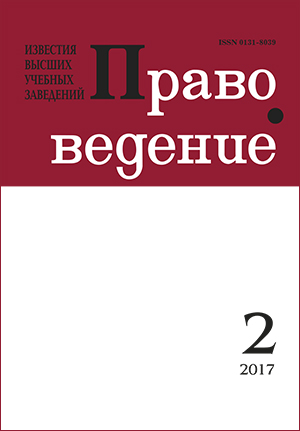The limits of criminal law in Thailand and China: comparative analysis
Abstract
The previous studies looked at the general parts of criminal laws of Thailand and China either in the context of studying specific offences or with the purpose to trace the development of the national systems of criminal laws in a historical dynamic. This study attempts to analyze the basic principles of criminal laws of those countries within the framework of different theories of legal reasoning. The consequentialist theories define criminal offence by looking at the social consequences or results of the act or its omission. Non–consequentialist theories are deontological in nature by affirming that certain offences are evil in themselves and to such an extent that the perpetrators deserve punishment irrespectively their social consequences. Criminal laws of Thailand and China express, to a different extent, a consequentialist type of legal reasoning which reinforces the authoritarian tendencies of political life. It is important to realize and acknowledge that criminalization has certain limits which have a non–consequentialist nature. Their violation will not only lead to the abuses of natural rights but will also result in the situation that can be precisely described as “the cancer of law:” an uncontrolled growth of law leading to the destruction of natural bonds which unite people into a political society. In this context, the idea of natural law obtains its great significance and importance.
Keywords:
criminal law, Thailand, China, natural law, positive law, criminalization
Downloads
References
Downloads
Published
How to Cite
Issue
Section
License
Articles of "Pravovedenie" are open access distributed under the terms of the License Agreement with Saint Petersburg State University, which permits to the authors unrestricted distribution and self-archiving free of charge.




